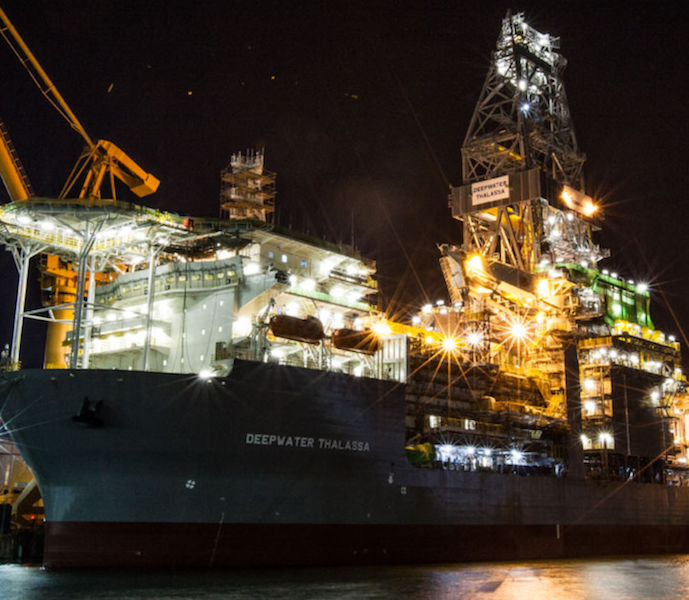Switzerland-based drilling contractor Transocean Ltd. announced a $2.7 billion acquisition of Ocean Rig UDW, a move company officials said will bolster their ultradeepwater capabilities ahead of a market recovery.
The cash and stock transaction will give shareholders of Cyprus-based Ocean Rig 1.6128 newly issued shares of Transocean stock, plus $12.75 in cash for each share of Ocean Rig’s common stock, for a total implied value of $32.28 per Ocean Rig share, based on the closing price on Aug. 31, 2018.
Transocean shareholders will own about 79% of the combined company, with Ocean Rig shareholders owning around 21%, with no anticipated changes to corporate structure or management.
The deal will bring into Transocean’s fleet nine high-specification ultradeepwater drillships, and two harsh environment semisubmersibles. Ocean Rig also has two high-specification ultradeepwater drillships under construction at Samsung Heavy Industries, with expected deliveries in the third quarter of 2019 and the third quarter of 2020.
“The proposed acquisition of Ocean Rig provides us with a unique opportunity to continue enhancing our fleet of ultradeepwater and harsh environment floaters, without compromising our liquidity or overall balance sheet flexibility,” said Jeremy Thigpen, Transocean’s president and CEO.
“The combination of constructive and stable oil prices over the last several quarters, streamlined offshore project costs, and undeniable reserve replacement challenges has driven a material increase in offshore contracting activity,” said Thigpen. “As such, adding Ocean Rig’s premium assets to our industry-leading fleet provides us with an increased number of the modern and highly efficient ultradeepwater drillships preferred by our customers, and better positions us to capitalize on what, we believe, is an imminent recovery in the ultradeepwater market.”
The expanded fleet will increase Transocean’s presence in Brazil, West Africa and Norway, and enable the company to reduce its costs per active rig. The Ocean Rig operations can be merged “with limited incremental shore-based expense,” said Thigpen. “Further, we are confident that we can realize meaningful synergies through our OEM agreements, our overall approach to maintenance and our fleet-wide insurance coverage, among other opportunities.”
The expansion will give Transocean a fleet of 57 floaters including the rigs under construction.
“With this unparalleled fleet, the offshore drilling industry’s largest and most profitable backlog totaling $12.5 billion, and approximately $3.7 billion in liquidity, we are well-equipped for the market recovery,” said Thigpen.



.JPG.small.400x400.jpg)

